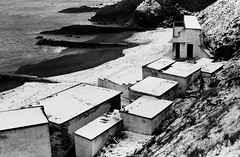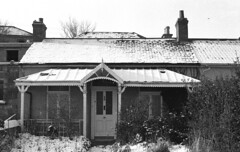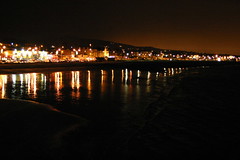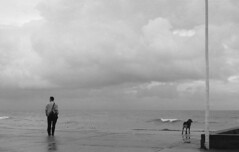Poet, music teacher, friend, mentor, bright spirit.
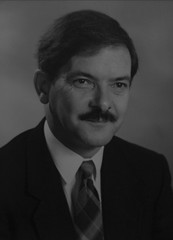
One of the brightest lights in my life, my friend Anthony Glavin, died on Tuesday 14th November after many years of suffering with emphysema. He was 61. The following week I put together an obituary with the help of his friends and family, particularly his sister Irene (she and her husband Mike, were Anthony’s primary carers). Below is an edited version of the obit, followed by further details and personal reminiscences about his life and work.
Anthony Glavin, who died at the age of 61 in the Mater Hospital, was a poet and Professor of Music at The Royal Irish Academy. He was born in Dublin on August 7th 1945 to Kathleen and James J. Glavin. Anthony’s father fought in The War of Independence and later went on to work for the Irish Sugar Co. (Comhlucht Siúicre Eireann, Teoranta) till he retired in 1971.
Anthony was educated at Scoil Uí Chonaill, North Circular Road, where he excelled at drama and music, eventually studying at The Royal Irish Academy where Dina Copeman was his tutor. He regularly entered the yearly Feis Ceol and came first many times, competing with musicians such as John O’Conor and Micheál Ó Ruairc. Each year he played one of the lead parts in the school’s production of Gilbert and Sullivan.
After leaving school Anthony studied at University College Dublin and Trinity College. In 1963, during his first year at UCD, he was approached by the Rathmines and Rathgar Musical Society and played Jack Point in The Gaiety’s production of Yeoman of the Guard. It was also at UCD that Anthony took over from Harry Crawley as Auditor of the Literary and Historical Society and presided brilliantly over the Saturday night sessions and debates. His sister Irene also used to attend these debates, which were open to the public; she recalls what a gifted speaker her brother was, and how she could depend on having a wonderfully entertaining evening. During this period Anthony was active in the UCD drama society, Dramsoc. His friend the writer Thomas Tessier remembers him giving an electrifying performance as Father Grandier in John Whiting's play The Devils, directed by Colm O'Briain.
Anthony received his Licentiate from The Royal Irish Academy of Music and joined the staff there in 1969. During the 1980s he served on the RIAM Board of Governors. He was an outstanding teacher, a nurturer of talent and friendship who forged strong relationships with his students and their families. Many of his students went on to become distinguished singers, teachers and musicians such as Peter Tuite, who won the European Musician of the Year Award; also Sarah, John and Michelle Picardo, Niamh McGarry and Robin Tritschler, who read and performed at his funeral service. Anthony was a highly valued and much loved member of staff at the RIAM, which was very supportive of him during his long illness. On the day of his funeral the RIAM held a half-day of mourning and one-minute silence in memory of Anthony’s unique contribution.
Anthony began publishing poetry and reviews while at university. His poetry appeared in numerous newspapers and journals and was first anthologised in ‘Irish Poets 1924-74’, edited by David Marcus. Anthony won the Patrick Kavanagh Award in 1987 and his poetry collection, ‘The Wrong Side of the Alps’, was published by Gallery Press in 1989. The following year he received an Arts Council Bursary and his collection was shortlisted for The Irish Book Awards. Reviewing ‘The Wrong Side of the Alps’ for Books Ireland, Fred Johnston wrote that ‘it is a fine, meticulous book’ and ‘there is, to quote Glavin himself, “a weightless perfection” about most of these poems.’
Anthony could easily have gained prominence as a well-known and highly acclaimed poet. However, a combination of relentless perfectionism and his worsening illness led to his reluctance to publish more than one collection. Before and during his illness Anthony was working on a long, ambitious sequence of four-line poems, the first three sections of which were published in his Gallery Press book. The following poem (published in PIR 87) is taken from this sequence:
AN AFTERLIFE
Suddenly, glass to lips in the ballyhoo
Of the 'Open Bar' after the Service, I knew
The bewildered and unbewildered carrying on
Would all end dedicated to you.
Anthony is survived by his two sisters, Irene and Anne and his brother Frank. There will be a celebratory concert and poetry reading in memory of Anthony at The Royal Irish Academy of Music, Westland Row, Dublin 2 on December 20th. For further information contact the RIAM at 01 6325300.
Anthony was first introduced to me by a mutual friend in the mid 1970s. From the moment I met him I knew I was in the presence of someone special, a mind extraordinarily alert and self-possessed. In the late 1980s we began to meet more regularly and became close friends.
We often clashed. I was prone to dreamy absentmindedness, to catching only the tail-end of one of his carefully worded sentences, and (worse still) making do with my half-comprehension. Anthony was exactly the opposite. He had the quickest mind of anyone I’ve ever known and an impatience to match. I can think of no one who would suffer fools less gladly. But, even at his most argumentative, he was often invigorating; there was always the possibility of some minor revelation, the chance that this time we might have a “nice little canter.” I will miss these; also his warmth and his fierce loyalty. Anthony was an Hour of The Wolf friend, someone you could call at three or four in the morning, whether you were in trouble or merely feeling troubled.
Anthony came close to dying more than once over the past decade, when the drugs and ventilator seemed inadequate. I remember one occasion, in St Michael’s in Dún Laoghaire, when he was convinced that his time was imminent. On that afternoon he was prepared, grateful to be able to say goodbye with grace. Borrowing a line from the film ET, he pressed his fingertip to my forehead and said: “I’ll be right here.”
I will also miss Anthony’s wicked and mischievous humour, which survived despite all the ravages of emphysema. He loved all kinds of wordplay: from filthy limericks to puns (including visual puns), spoonerisms, deliberate slips of the tongue. Any occasion might offer an opportunity. When he was still able to get about, with the aid of a portable oxygen tank with nasal tubes, he was queuing for an ATM when he noticed that the woman in front of him was wearing the same gear. He tapped her on the shoulder. When she turned round he said,
"snap!" She got the joke and laughed.
I have already mentioned Anthony’s work of half a lifetime, the ambitious sequence of quatrains, originally titled ‘Living In Hiroshima’. Anthony was haunted by the fact that his birth-date, the 7th of August 1945 (a Bank Holiday in Ireland), was just one day after Little Boy was dropped on Hiroshima; that his coming into the world coincided with an event that abruptly altered the world’s “historical velocity.” As the title of the first poem in the sequence (taken from a Time article in 1985) puts it: “Everybody lives in Hiroshima.”
When Anthony received his Arts Council Bursary in 1990, his intention was to travel to Japan, to visit Hiroshima and Nagasaki and supplement his extensive research with actual experience. He had asked me to accompany him, as a friend and fellow writer, but also for more practical reasons. Though he could still drive, his emphysema had already reached that stage necessitating that someone be on hand as a kind of minder. Alas, the trip had to be cancelled; his doctor advised that such long-haul flying would be risky for someone in his condition.
Though the sequence includes much about the actual explosion and its after-effects (all diligently researched), it also encompasses many other fragments, what Peter Fallon called “glancing images”, from 20th Century history. Some of these are from Anthony’s personal history, such as his “push for freedom” on that particular Bank Holiday weekend, or his love life, travels, “wrestling with words and meanings”. There are moments of delighted epiphany, bleak self-scrutiny, wrenching horror (from Hiroshima, Nazi and Japanese war crimes) and pitch-black humour, all of them referencing and calling to each other as much as to what lies at the radiant hub of the sequence. This is part of the rhythm of ‘Living In Hiroshima’; each poem, however self-contained, affects and is affected by that blind(ing) spot at the centre.
The completed sequence, had he ever finished it, might have contained 250 of these ‘hironyms’, making 1000 lines in all. That was one plan anyway, inspired by the Japanese paper crane ceremony, in which the act of folding 1000 origami paper cranes may touch (or save) one human soul. I am not sure that this plan was ever abandoned. But Anthony was a relentless perfectionist; with his worsening illness, it demanded all his energy to redraft small sections, then, eventually, single poems, attempting to salvage as much as he could from the project. Had Anthony managed to complete ‘Living In Hiroshima’ I have no doubt that it would have been a major 20th/21st Century work. However incomplete though, it is still a brilliant and unique sequence. Happily, many of the single poems function, not only as part of that sequence, but in their own rights, as compact and coherent worldlets.
Here are just five more of them, to give some sense of what I mean:
PRAYER*
It was said a thousand cranes made of
Hand-folded paper would be enough
To save a life.
Some days you wouldn’t know what to believe.
VOYAGER TWO
Leaps past Triton at 17 miles a second –
Wolf-howl, birth-cry, greetings from a one-time Nazi
Packed in a space the size of the human psyche,
Headlong to the limits, a feeler, beyond the beyond.
IT’S A SILENT RHAPSODY
Holds open the guestroom door we couldn’t close
The whole high summer we lip-read through at body-heat
Counting on one another’s heartbeat
And not making love because the noise, the noise…
LOWELL TO T.E.HULME*
My mind’s not right, but with my ear to the ground
I heard the bass growl of Hiroshima
And a beating-out of images that enlarge the heart.
Is nothing bad in itself except disorder?
ANCIENT MARINER
So distant the Antarctic slippage
Capsizing ocean
And that soft sighing you hear as an
Albatross, winging it, somewhere, at the very edge –
* The two asterisked poems were published in PIR 87. The title of the latter refers to the poets Robert Lowell and T.E. Hulme.
Hulme was probably the originator of the early 20th Century Imagist movement, which influenced Pound's poetry. He was also a Tory. The last line is a paraphrase of his statement "Nothing is bad in itself except disorder" (from 'A Tory Philosophy').
All poems copyright of the Anthony Glavin estate. All rights reserved.
